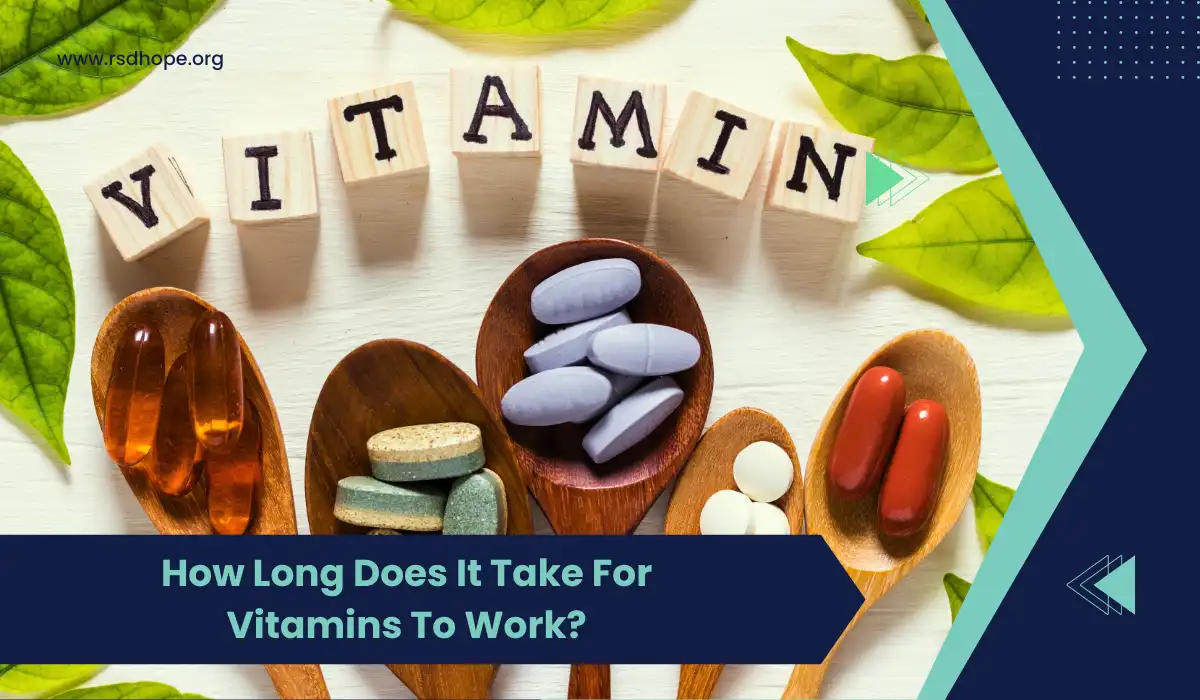Vitamins are essential for maintaining good health and supporting various bodily functions. Whether you’re looking to boost your immune system, improve your energy levels, or promote overall well-being, understanding how long it takes for vitamins to work is essential. In this blog post, we’ll explore the factors that influence vitamin effectiveness and provide insights into the timeline for different types of vitamins.
Key Takeaways
- The time it takes for vitamins to work varies depending on the type of vitamin and individual factors.
- Water-soluble vitamins generally take effect more quickly than fat-soluble vitamins.
- Consistency in vitamin intake is crucial for optimal effectiveness and long-term health benefits.
What are vitamins?
Vitamins are vital micronutrients that our bodies need in small quantities to function properly. They play vital roles in various physiological processes, such as metabolism, growth, and development. Vitamins are categorized into two main types: water-soluble vitamins (B-complex and C) and fat-soluble vitamins (A, D, E, and K). While our bodies can produce some vitamins, most must be obtained through a balanced diet or supplements.
Factors influencing vitamin absorption
Several factors can influence the absorption and effectiveness of vitamins in the body. Age, health conditions, and genetic variations can impact how well your body absorbs and utilizes vitamins. Lifestyle choices, such as dietary habits and medication use, can also affect vitamin absorption. For example, consuming alcohol or taking certain medications can interfere with the absorption of specific vitamins. Understanding these factors can help you optimize your vitamin intake for better results.

Water-soluble vitamins
Water-soluble vitamins, such as vitamin C and B-complex vitamins, dissolve in water and are not stored in the body in significant amounts. Excess water-soluble vitamins are expelled through urine, necessitating regular replenishment. These vitamins generally take effect more quickly than fat-soluble vitamins. For instance, vitamin C can start showing benefits within a few days to a week of consistent intake, while B-complex vitamins may take a few weeks to reach optimal levels in the body.
Fat-soluble vitamins
Fat-soluble vitamins, such as A, D, E, and K, are stored in the body’s fatty tissues and liver and need dietary fat for proper absorption. These vitamins tend to have a longer timeline for effectiveness compared to water-soluble vitamins. For example, vitamin D levels may take several weeks to a few months to improve significantly, while the benefits of vitamin E may become apparent within a few weeks of consistent intake.
Individual vitamin effectiveness
The timeline for specific vitamins to take effect can vary. Here are a few examples:
- Vitamin C: May start showing benefits within a few days to a week of consistent intake.
- B-complex vitamins: Can take a few weeks to reach optimal levels in the body.
- Vitamin D: Levels may improve within several weeks to a few months of consistent intake.
- Vitamin E: Benefits may become apparent within a few weeks of regular consumption.
Importance of consistency
Consistency is key when it comes to vitamin effectiveness. Taking vitamins regularly allows your body to maintain optimal levels and reap the long-term health benefits. Establishing a routine for taking vitamins, such as with meals or at a specific time each day, can help ensure consistent intake. Setting reminders or using a pill organizer can also be helpful in staying on track with your vitamin regimen.
Seeking professional advice
While vitamins are generally safe, it’s essential to consult with a healthcare professional before starting any new supplement regimen. They can help you understand your individual needs, assess potential interactions with medications, and recommend the most suitable vitamins for your specific health goals. A qualified healthcare provider, such as a registered dietitian or a physician, can offer personalized guidance and monitor your progress.
Monitoring and adjusting
As you incorporate vitamins into your routine, pay attention to how your body responds. Keep track of any changes in your energy levels, mood, or overall well-being. If you don’t notice improvements within the expected timeline, consult with your healthcare provider. They may suggest adjusting your vitamin intake or exploring other factors that could be impacting your health. Remember, everyone’s body is unique, and what works for one person might not work for another.
Conclusion
Understanding the timeline for vitamin effectiveness is crucial for anyone looking to support their health through supplementation. While the time it takes for vitamins to work varies depending on the type of vitamin and individual factors, consistency in intake is essential for optimal results. By seeking professional advice, monitoring your progress, and making informed decisions about your vitamin regimen, you can harness the power of these essential nutrients to promote your overall well-being.
FAQs
A: While some people may notice improvements quickly, most vitamins take time to show significant effects. Water-soluble vitamins tend to work faster than fat-soluble vitamins, but individual results may vary.
A: Generally, it’s recommended to give vitamins at least a few weeks to a few months before evaluating their impact on your health. Consistency in intake is key for accurate assessment.
A: Yes, consuming excessive amounts of certain vitamins can lead to adverse effects. Fat-soluble vitamins, in particular, can accumulate in the body and cause toxicity if taken in large doses.
A: If you experience persistent fatigue, mood changes, or other unusual symptoms despite consistent vitamin intake, it may be a sign to reevaluate your regimen. Consult with a healthcare provider to rule out any underlying health issues and determine if adjustments to your vitamin intake are necessary.

